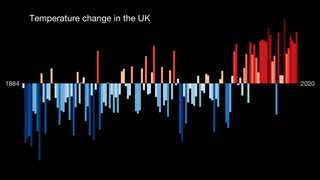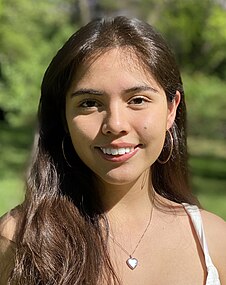Environmental finance is a field within finance that employs market-based environmental policy instruments to improve the ecological impact of investment strategies. The primary objective of environmental finance is to regress the negative impacts of climate change through pricing and trading schemes. The field of environmental finance was established in response to the poor management of economic crises by government bodies globally. Environmental finance aims to reallocate a businesses resources to improve the sustainability of investments whilst also retaining profit margins.
Carbon neutrality is a state of net-zero carbon dioxide emissions. This can be achieved by balancing emissions of carbon dioxide with its removal or by eliminating emissions from society. The term is used in the context of carbon dioxide-releasing processes associated with transportation, energy production, agriculture, and industry.
A green economy is an economy that aims at reducing environmental risks and ecological scarcities, and that aims for sustainable development without degrading the environment. It is closely related with ecological economics, but has a more politically applied focus. The 2011 UNEP Green Economy Report argues "that to be green, an economy must not only be efficient, but also fair. Fairness implies recognizing global and country level equity dimensions, particularly in assuring a Just Transition to an economy that is low-carbon, resource efficient, and socially inclusive."
A carbon credit is a generic term for any tradable certificate or permit representing the right to emit a set amount of carbon dioxide or the equivalent amount of a different greenhouse gas (tCO2e).

Greenhouse gas emissions from human activities strengthen the greenhouse effect, contributing to climate change. Most is carbon dioxide from burning fossil fuels: coal, oil, and natural gas. The largest emitters include coal in China and large oil and gas companies, many state-owned by OPEC and Russia. Human-caused emissions have increased atmospheric carbon dioxide by about 50% over pre-industrial levels. The growing levels of emissions have varied, but it was consistent among all greenhouse gases (GHG). Emissions in the 2010s averaged 56 billion tons a year, higher than ever before.
Energy Saving Trust (EST) is a British organization devoted to promoting energy efficiency, energy conservation, and the sustainable use of energy, thereby reducing carbon dioxide emissions and helping to prevent man-made climate change. It was founded in the United Kingdom as a government-sponsored initiative in 1992, following the global Earth Summit.
Mathis Wackernagel is a Swiss-born sustainability advocate. He is President of Global Footprint Network, an international sustainability think tank with offices in Oakland, California; Brussels, Belgium, and Geneva, Switzerland. The think-tank is a non-profit that focuses on developing and promoting metrics for sustainability.

Environmental issues are effects of human activity on the biophysical environment, most often of which are harmful effects that cause environmental degradation. Environmental protection is the practice of protecting the natural environment on the individual, organizational or governmental levels, for the benefit of both the environment and humans. Environmentalism is a social and environmental movement that addresses environmental issues through advocacy, legislation education, and activism.

The World Wide Fund for Nature Inc. (WWF) is an international non-governmental organization founded in 1961 that works in the field of wilderness preservation and the reduction of human impact on the environment. It was formerly named the World Wildlife Fund, which remains its official name in Canada and the United States.

Climate change in the United Kingdom is impacting the country's environment and human population in many ways. The country's climate is becoming warmer, with drier summers and wetter winters. The frequency and intensity of storms, floods, droughts and heatwaves is increasing, and sea level rise is impacting coastal areas. The United Kingdom (UK) is also a contributor to climate change, having emitted more greenhouse gas from the country per person than the world average. Climate change is having economic impacts on the UK and presents risks to human health and ecosystems.

The environmental effects of transport are significant because transport is a major user of energy, and burns most of the world's petroleum. This creates air pollution, including nitrous oxides and particulates, and is a significant contributor to global warming through emission of carbon dioxide. Within the transport sector, road transport is the largest contributor to global warming.

Individual action on climate change can include personal choices in many areas, such as diet, travel, household energy use, consumption of goods and services, and family size. Individuals can also engage in local and political advocacy around issues of climate change. As of 2020, emissions budgets are uncertain but estimates of the annual average carbon footprint per person required to meet the target of limiting global warming to 2 degrees by 2100 are all below the world average of about 5 tonnes CO2-equivalent. And to meet 1.5 degrees 2.3 tonnes annual average is required by 2030. According to 66% of respondents to an EU climate survey, climate change will still be a severe concern by 2050.
Anna Rose is an Australian author, activist and environmentalist. She co-founded the Australian Youth Climate Coalition (AYCC) in late 2006 with Amanda McKenzie. In 2012 she co-starred in an ABC documentary, I Can Change Your Mind on Climate Change and released her first full-length book, Madlands: A Journey to Change the Mind of a Climate Sceptic. Rose is the founder and CEO of Environment Leadership Australia, a not-for-profit, non-partisan organisation championing community and political leadership on climate change. She sits on the Board of Directors of Farmers for Climate Action, is a Governor of WWF-Australia, an advisory board member for Australian Geographic Society, and a former Myer Foundation Innovation Fellow.

The contributions of women in climate change have received increasing attention in the early 21st century. Feedback from women and the issues faced by women have been described as "imperative" by the United Nations and "critical" by the Population Reference Bureau. A report by the World Health Organization concluded that incorporating gender-based analysis would "provide more effective climate change mitigation and adaptation."
Ruth Yeoh Pei Cheen is a Malaysian businesswoman, philanthropist and environmentalist. She is currently the Executive Director at YTL Singapore and Director of YTL Corporation's carbon credit and clean development mechanism consultancy. She is the co-author of Cut Carbon, Grow Profits: Business Strategies for Managing Climate Change and Sustainability.

Greta Tintin Eleonora Ernman Thunberg is a Swedish environmental activist who is known for challenging world leaders to take immediate action for climate change mitigation.

Xiye Bastida is a Mexican climate activist and an Indigenous person from the Otomi community. She is one of the major organizers of Fridays for Future New York City and has been a leading voice for indigenous and immigrant visibility in climate activism. She is on the administration committee of the People's Climate Movement and a former member of Sunrise Movement and Extinction Rebellion. She cofounded Re-Earth Initiative, an international nonprofit organization that is inclusive and intersectional “just as the climate movement should be.”

Sophia Kianni is an Iranian-American climate activist. She is the executive director of Climate Cardinals and the youngest member on the United Nations Secretary-General's Youth Advisory Group on Climate Change.

Lindsey Marie Coffey is an American fashion model, activist and beauty queen who was crowned Miss Earth 2020. Coffey was previously crowned Miss Earth USA 2020, making her the first representative from the United States to win the Miss Earth title.
One environmental impact of bitcoin is that it worsens climate change. This is because bitcoin are made using electricity partially generated by gas-fired and coal-fired power plants. When burned coal and natural gas emit greenhouse gases which heat the Earth so changing the climate. As of 2022 such bitcoin mining is estimated to be responsible for 0.1% of world greenhouse gas emissions. A second environmental impact is the air pollution caused by coal-fired electricity generation and a third the e-waste due to the short lifetime of bitcoin mining equipment.










